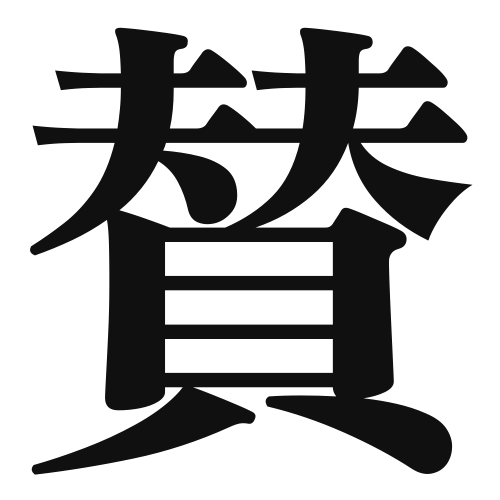1. Overview of Meaning
The kanji “賛” (san) means “to approve,” “to support,” or “to praise.” It is often used in contexts where agreement or endorsement is expressed.
2. Formation and Radical
Formation of the Kanji: The kanji “賛” is a compound character (会意文字) that combines elements to convey its meaning. It consists of the radical for “money” (貝) and the character “赞” (which means to praise or approve).
Radical: The radical of “賛” is 貝 (kai), which is associated with money or valuables, indicating a connection to value or worth in the context of approval or praise.
3. Examples of Usage
Common Words and Phrases: Some frequently used words that include “賛” are:
- 賛成 (さんせい, sansei) – agreement, approval
- 賛美 (さんび, sanbi) – praise, admiration
Example Sentences in Daily Conversation:
- 彼の意見に賛成です。 (かれのいけんにさんせいです。) – I agree with his opinion.
- 彼女の歌を賛美します。 (かのじょのうたをさんびします。) – I praise her singing.
4. Synonyms and Antonyms
Similar Kanji: A similar kanji is “称” (shou), which means “to call” or “to name,” but it emphasizes recognition rather than approval.
Antonyms: The antonym of “賛” is “反対” (はんたい, hantai), which means “opposition” or “disagreement.”
5. Cultural and Historical Background
Connection to Japanese Culture: The concept of “賛” is significant in Japanese culture, where consensus and harmony are valued. Approval and support are often sought in group settings.
Proverbs and Idioms: An example of a related proverb is “賛否両論” (さんぴりょうろん, sanpi ryouron), which means “there are both pros and cons,” highlighting the importance of diverse opinions.
